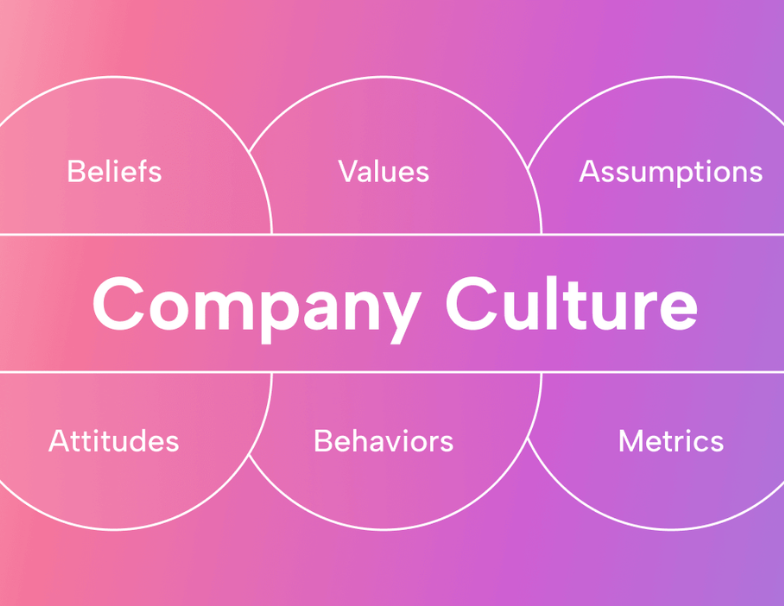Transform Your Company Culture: Top Corporate Retreat Ideas That Work

Ever wondered how a corporate retreat can benefit your company? This article dives into the key benefits, innovative retreat ideas, and planning tips that ensure a successful event. Learn how to enhance team dynamics, boost morale, and improve communication through well-organized corporate retreats.
Key Takeaways
- Corporate retreats enhance team bonding, communication, and productivity by providing a relaxed environment for employees to connect.
- Choosing an inclusive retreat location with diverse activities is crucial for maximizing engagement and comfort during the event.
- Effective planning, clear objectives, and a focus on employee well-being are key to ensuring a successful corporate retreat that boosts morale and collaboration.
What is a Corporate Retreat?

A corporate retreat is an event where employees step away from their regular work environment to engage in activities aimed at team building, improving morale, and fostering a more cohesive company culture. These company retreats can range from simple gatherings to elaborate events, all designed to help employees connect on a personal level outside the office.
Corporate retreats offer numerous benefits, including improved communication, increased employee engagement, and the discovery of hidden talents and interests among team members. These retreats create opportunities for teams to interact outside their daily routines, fostering inclusivity and team dynamics.
Key Benefits of Hosting a Corporate Retreat

Hosting a corporate retreat offers a myriad of major benefits that extend beyond the immediate experience. One of the most significant advantages is the enhancement of interpersonal relationships and open communication among team members. In a relaxed setting, employees become more familiar with each other, enhancing teamwork and collaboration back in the office.
Another major benefit is the boost in productivity engagement and performance. When team members participate in retreats, they often report a surge in creativity and innovation due to the change of environment. Workshops and team challenges during these events can inspire new ideas and solutions, ultimately leading to increased productivity. Moreover, the immersive experience of a retreat helps in discovering and appreciating hidden talents among employees, fostering a greater sense of community and belonging.
Corporate retreats also significantly boost employee morale. Many workers view these events as valuable perks, which enhance their overall job satisfaction and engagement. Addressing issues like burnout and emphasizing work-life balance during retreats contributes to higher morale and a more motivated workforce.
Choosing the Perfect Retreat Location

Selecting the right location for your company retreat is crucial to its success. The retreat location should offer a mix of accessibility and amenities to ensure maximum participation and comfort for all team members. Choosing a venue that offers an atmosphere conducive to relaxation and reflection, like those with spas or fitness facilities, is key.
Inclusivity should also be a key consideration in your retreat planning. Ensure that the chosen location is welcoming and accessible to everyone, catering to diverse needs and preferences. Additionally, venues that offer a variety of retreat activities, both indoors and outdoors, can enhance the overall experience and provide opportunities for different types of team building exercises.
Innovative Ideas for Your Next Company Retreat

When it comes to corporate retreats, thinking outside the box can lead to more engaging and memorable experiences. Engaging in different activities during retreats can encourage innovative thinking and foster a collaborative environment. From adventurous outdoor activities to skill-building workshops and fun team-building exercises, there are numerous ways to make your next company retreat stand out.
Consider incorporating a mix of these innovative ideas to keep the experience fresh and exciting. Whether it’s a thrilling ziplining adventure or a deep dive leadership workshop, the right combination of activities can significantly enhance team bonding and employee morale.
Let’s explore some specific categories of activities that can transform your corporate retreat.
Outdoor Adventures
Outdoor adventures offer a rare opportunity for the entire team to bond in a natural setting while engaging in exhilarating activities. Imagine your team soaring through the trees on a ziplining course or working together in a scavenger hunt to solve clues and reach the finish line. Also, outdoor activities not only provide an adrenaline rush but also foster teamwork and collaboration.
Hiking and bike tours are excellent options for those who prefer a more relaxed pace. These activities allow team members to connect with nature and each other, promoting a sense of camaraderie.
Water activities like kayaking and stand-up paddleboarding can also be a hit, offering a unique way to build team dynamics while enjoying the outdoors.
Skill-Building Workshops
Skill-building workshops are an essential component of any successful corporate retreat. These sessions focus on professional development and help enhance the skills of team members. Leadership development workshops, for example, can significantly contribute to leadership growth within the organization. Deep dive presentations allow employees to share their expertise and learn something new, fostering a positive company culture of continuous learning.
Implementing these workshops not only improves individual skills but also cultivates a collaborative environment where team members can share ideas and work together more effectively. Focusing on skill development ensures that retreats are both productive and enriching for companies.
Fun Team-Building Exercises
Fun team-building activities are a great way to break the ice and encourage interaction among team members. Activities like cooking classes provide a creative outlet for teams to collaborate and strengthen their bond. Karaoke sessions can serve as a fun icebreaker game, allowing employees to let loose and enjoy each other’s company in a relaxed setting.
Game nights with board games offer an opportunity for friendly competition and teamwork. These activities not only enhance teamwork but also foster a supportive work environment where employees feel more connected to their colleagues. Incorporating a variety of team-building exercises can significantly improve team dynamics and morale.
Planning Process for a Successful Corporate Retreat
A successful corporate retreat begins with a well-thought-out planning process. Establishing a clear goal is crucial, as it guides the entire planning process and ensures that the retreat meets its objectives. Setting specific, measurable objectives allows organizations to track outcomes and make necessary adjustments for future retreats.
Incorporating a mix of business activities and leisure time in the agenda is essential. This balance ensures that employees remain engaged and motivated throughout the retreat. Hiring an experienced event planner can help manage all the details and ensure a seamless experience. Additionally, a skilled facilitator can enhance discussions and address group dynamics, leading to productive outcomes.
Clearly establishing the objectives and goals for the retreat is essential for its success. Combining structured business sessions with enjoyable activities creates a memorable and cost-efficient retreat experience.
Enhancing Employee Well-Being During Retreats

Focusing on employee well-being during corporate retreats can lead to significant benefits for both employees and the organization. Retreats provide an opportunity for employees to recharge and focus on their well-being outside of work pressures. Balancing the agenda with structured activities and downtime is essential to prevent exhaustion and ensure that employees return to work feeling refreshed.
Wellness activities like yoga and mindfulness sessions can enhance mental health and contribute to higher emotional intelligence. These practices not only improve individual well-being but also foster a more supportive and collaborative work environment. Emphasizing well-being boosts employee morale and creates a healthier, more engaged workforce.
How to Foster Collaboration and Communication
Corporate retreats are an excellent opportunity to foster collaboration and improve communication among team members. In person retreat help fulfill employees’ need for personal interactions, which is particularly important in remote or hybrid work settings. These company retreats create a platform for better interpersonal relationships and improved team communication.
Incorporating fun elements into work sessions can help maintain engagement and motivation among participants. Team-building exercises should be designed to promote dialogue and active listening, which are critical for effective collaboration.
Encouraging collaboration through team challenges helps break down silos and builds trust among team members.
Skilled facilitators play a crucial role in guiding discussions and ensuring they align with retreat objectives. Creating an environment that encourages teamwork and the exchange of ideas significantly enhances team dynamics and boosts overall productivity, especially for team leads.
Evaluating the Success of Your Corporate Retreat
Evaluating the success of your corporate retreat is essential for continuous improvement. One effective method is to conduct post-retreat surveys and feedback that assess the impact on communication, morale, and team dynamics. Collecting anonymous feedback helps identify successes and areas for improvement for future events.
Setting actionable items at the end of the retreat ensures that the insights gained are applied in the workplace. By measuring the success of their retreats, companies can make informed decisions and enhance the effectiveness of future events.
Summary
In summary, corporate retreats are invaluable for enhancing company culture, fostering team building, and boosting employee engagement. From choosing the perfect location to implementing innovative activities and focusing on employee well-being, every aspect of retreat planning contributes to a successful and memorable experience. By evaluating the success of these retreats, companies can continuously improve and create more impactful events. Embrace the power of corporate retreats. Companies like Offsite can help you design experiences that inspire connection, boost morale, and help your team thrive.
FAQs
- What are the main benefits of corporate retreats?
Corporate retreats enhance team bonding, boost morale, improve communication, and increase overall productivity. These activities offer benefits that contribute significantly to a more cohesive and effective work environment.
- How do I choose the right location for a corporate retreat?
Choose a location for your corporate retreat that emphasizes accessibility, offers essential amenities, and includes a balance of indoor and outdoor spaces to foster collaboration and engagement. This will ensure that all participants feel included and can fully benefit from the experience.
- What activities can be included in a corporate retreat?
Including activities such as outdoor adventures, skill-building workshops, cooking classes, and team-building exercises can greatly enhance a corporate retreat. These options foster collaboration and strengthen team dynamics.
- How can I enhance employee well-being during a retreat?
To enhance employee well-being during a retreat, incorporate wellness activities such as yoga and mindfulness sessions while balancing structured activities with ample downtime. This approach fosters relaxation and rejuvenation among participants.
You may also like
Unique spaces for your next offsite
Find distinctive venues for your upcoming corporate retreat.
Stay Updated with Our Insights
Get exclusive content and valuable updates directly to you.







